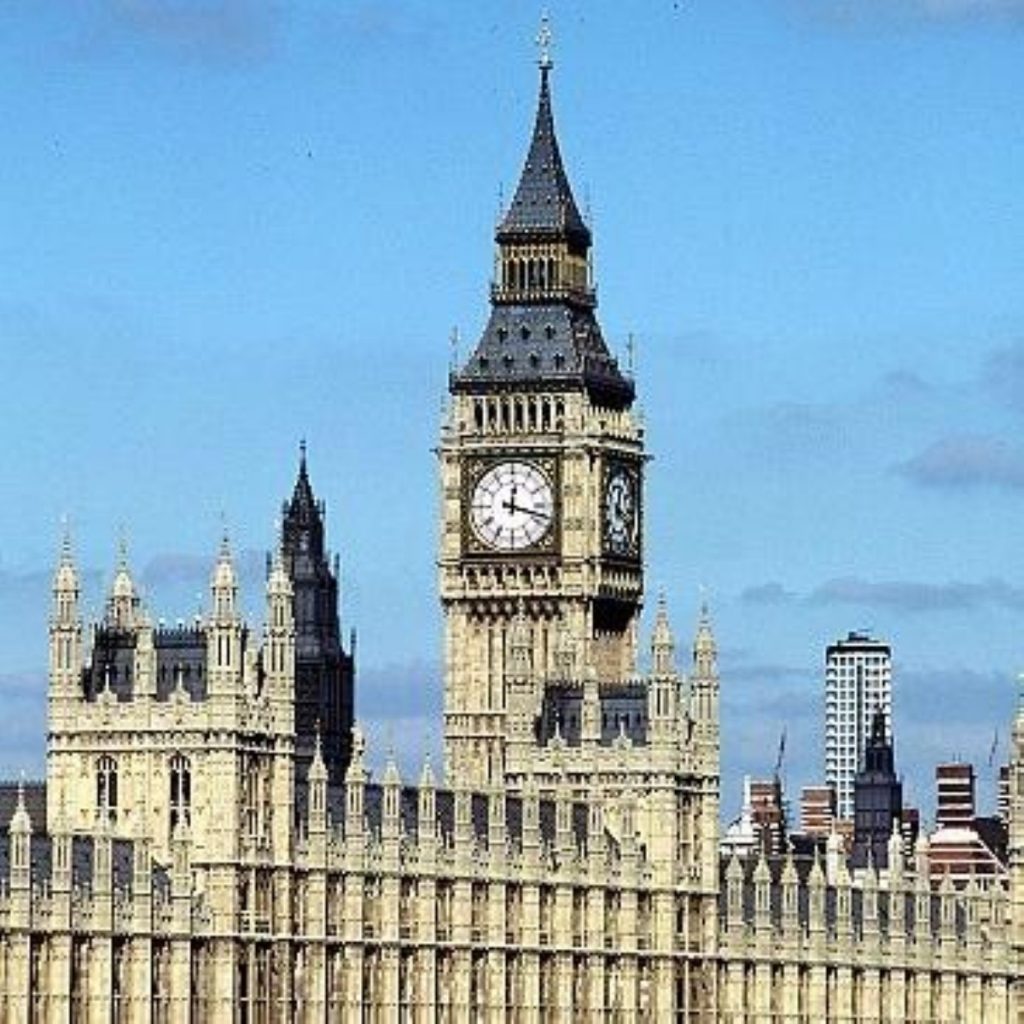Human rights groups in last-ditch fight against 42-days
Human rights groups are launching a final attempt to stop the expansion of pre-trial detention to 42 days.
The plans go to a Commons vote tomorrow after weeks of behind-the-scenes arm twisting and political bribes by Labour whips. Debate began today with the more minor aspects of the bill.
Downing Street still appears nervous about the result.
Asked how confident Gordon Brown is, his official spokesman said: “The general position was that there was still more to do.”


And Home Office minister Tony McNulty says the result is looking “very, very tight”.
Home secretary Jacqui Smith and chief whip Geoff Hoon briefed Cabinet members this morning.
Civil liberties group Liberty organised a protest outside parliament this evening at which the group released 42 balloons to highlight their objection to the proposals.
Liberty director Shami Chakrabarti was joined by the shadow home secretary David Davies, Liberal Democrat home affairs spokesman Chris Huhme, and veteran Labour rebel Diane Abbott as well as film stars and celebrities opposed to the move.
“Releasing 42 balloons symbolises our hope that tomorrow parliamentarians will agree that great democracies don’t lock people up for 42 days without charge,” Ms Chakrabarti said.
Meanwhile, the director of Amnesty International UK, Kate Allen, has made an impassioned plea for lawmakers to vote against the proposals.
In a letter sent to the pivotal backbench MPs whose votes will decide the outcome, Ms Allen writes: “I urge you to stand in support of principles that lie at the heart of our society, principles such as justice and liberty.”
Neither group has been persuaded by government amendments to the bill. Both believe the law still lacks sufficient judicial and parliamentary scrutiny, because neither a judge nor MPs will be able to evaluate the evidence before them without prejudicing a future trial.
An independent human rights expert from the United Nations, Martin Scheinin, expressed his concerns that the bill could establish a negative precedent internationally.
“I am concerned that this counter-terrorism bill, if adopted, could prompt other states to copy the provision into their own counter-terrorism legislation, without reflecting on the importance of effective judicial review,” he warned.
Concerns have also been raised that the state which triggers the home secretary’s powers – a ‘grave and exceptional threat’ – is overly broad.
The Equality and Human Rights Commission opened up a new front by promising legal action against the plans should MPs accept them tomorrow.
Chairman Trevor Phillips said legal advice from Cherie Blair’s own Matrix chambers showed any extension to the pre-charge detention limit would violate the European convention on human rights.
Phillips said: “As the body charged with the promotion of human rights, we agree with ministers that the right to life is paramount, but that does not give us the liberty to take actions that unnecessarily violate other human rights.
“Should the proposed measures be carried, the commission will immediately move to test its legality by launching a judicial review.”
In a separate development, Jonathon Evans, head of MI5 has made an unprecedented statement stressing his organisation is not opposed to the extension.
Questions were raised about the security services’ views after the home secretary admitted over the weekend MI5 had not requested the new powers.
“A number of media reports have appeared in the last few days on the supposed position that MI5 takes in respect of pre-charge detention time limits,” Mr Evans said.
“I would like to make the service’s position on this issue clear. Since the Security Service is neither a prosecuting authority nor responsible for criminal investigations, we are not, and never have been, the appropriate body to advise the government on pre-charge detention time limits.
“We have not, therefore, sought to comment publicly or privately on the current proposals, except to say that we recognise the challenge posed for the police service by the increasingly complex and international character of some recent terrorist cases.”
Government plans have been given a further setback by the emergence of another senior figure opposed to the change.
Scotland’s chief legal officer, lord advocate Elish Angiolini, told the Herald newspaper the move was “not supported by prosecution evidence”.
The view is similar to that of Angiolini’s counterpart in England and Wales, the director of public prosecutions, Sir Ken Macdonald, who recently repeated his opinion that the change was unnecessary.
MPs will vote on the bill – undoubtedly the most controversial of Gordon Brown’s tenure – tomorrow. The results are too close to call, although many potentially rebellious Labour MPs are considering voting with the party simply to dampen talk of Mr Brown’s future.
The result may be so close everything will hinge on the nine Democratic Unionist Party (DUP) members.
The plans continued to face fierce criticism from objectors today, with Peter Facey, director of Unlock Democracy, saying: “This looks more like populist posturing from an increasingly desperate government than a responsible security measure.
“Regardless of the relative merits of both sides of the debate, to press ahead with something as constitutionally significant as this without cross-party support is wilfully irresponsible.”









